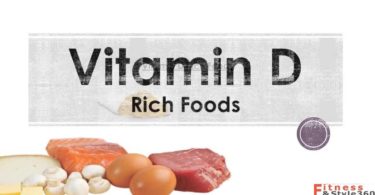Individuals aim to shed excess weight loss program for various reasons, often succumbing to the allure of trendy diets that promise swift, tangible results. Although there are methods to expedite weight loss, it is crucial to recognize that rapid shedding of pounds can have adverse effects.
Similar to many aspects of life, achieving weight loss that is safe, effective, and lasting is more about the process than fixating on a specific weight goal and a tight timeline. Continue reading for expert guidance on the most effective approaches to lose weight fast and maintain a healthy lifestyle.
Adopt Long-Term Lifestyle and Behavioral Adjustments
When aiming for weight loss program, eliminate the term “diet” from your vocabulary, advises Albertson. Diets can be unpleasant, inducing hunger and constant thoughts about food—precisely what you want to avoid during weight loss. Instead, she recommends framing weight loss as an integral part of overall health improvement, with a focus on prioritizing the well-being of your body.
“Weight loss fast is a complex journey, and while you may not have complete control over the scale’s numbers, you can control your dietary choices, physical activity, and other factors influencing weight loss meals, such as stress and sleep,” notes Albertson. She proposes setting SMART goals—specific, measurable, achievable, relevant, and time-sensitive—and rewarding yourself upon their accomplishment.
Direct Attention to the Initial 5% to 10%
Rather than stating, “I must lose 25 pounds,” which can be daunting and overwhelming, shift your focus to the health advantages attainable through even modest weight loss program reduction.
“Establish smaller, reachable goals,” recommends Bennett. “Losing just 5% to 10% of your total body weight (TBW) can significantly enhance your health and reduce the risk of various illnesses, including type 2 diabetes, stroke, cardiovascular disease, and certain types of cancer.”
Decrease Consumption of Highly Processed Carbs and Sweets
According to a study in the Journal of the American Medical Association emphasizing the significance of dietary choices for weight loss, the pace at which pounds are shed can be accelerated by enhancing the quality of your food intake.
“One of the healthiest approaches to weight loss supplements involves reducing your consumption of sugar and rapidly metabolized carbohydrates,” notes Bennett. “Specifically, it’s advisable to eliminate or significantly limit the intake of high-glycemic-load foods, such as sugary snacks, processed carbs, and soft drinks. By steering clear of or cutting down on items like French fries, chips, and crackers, you can expedite your weight loss program process.”
Embrace a Plant-Based Diet
Research indicates that not only does a plant-based diet facilitate weight loss meals, but it also proves more sustainable than a low-calorie regimen[2]. Moreover, it boasts a high nutrient density and offers various health advantages.
“Opting for a plant-based diet contributes to weight loss due to its richness in fiber and water, both of which are calorie-free but occupy space in your stomach, promoting a feeling of fullness,” explains Albertson. In fact, a Brazilian study uncovered a direct link between increased consumption of fruits and vegetables and improved weight loss fast outcomes[3].
Albertson recommends initiating your plant-based journey by aiming for five daily servings of produce, progressively working your way up to seven to nine servings a day. “Kickstart your day with a green smoothie, include a salad or sliced vegetables in your lunch, and incorporate fruits into your snacks and desserts,” she suggests. “For dinner, explore more stir-fry options, integrate veggies into pasta dishes, and stir them into soups.”
Boost Your Protein Intake
Increasing the amount of protein you consume can be effective in curbing appetite and preventing the loss of muscle mass.
“Eating approximately 25 to 30 grams of protein—equivalent to two scoops of protein powder or 4 ounces of chicken breast—per meal can enhance appetite control and assist in managing body weight,” advises Dr. Albertson. “The key is to ensure you include one serving of high-quality protein in each meal.”
Dr. Albertson also highlights that women aged 50 and above require a significantly higher protein intake (1 to 1.5 grams per kilogram of body weight loss supplements daily) compared to men and younger women (who need 0.8 grams of protein per kilogram of body weight daily). “Women need increased protein after 50, particularly as they approach menopause, as the decline in the hormone estrogen leads to a reduction in skeletal muscle mass, strength, and regenerative capacity,” she explains.
Increase Your Water Consumption
Research indicates that drinking more water is linked to weight loss, independent of diet and exercise[4]. A sufficient intake of water can enhance feelings of fullness, help combat sugar cravings, and play a crucial role in lipolysis—the body’s process of utilizing fat for energy.
Consume a Balanced Breakfast
Attention, breakfast skippers! If weight loss meals is on your agenda, neglecting your morning meal is not the solution. Studies consistently reveal that skipping breakfast is linked to overweight and obesity[6].
Furthermore, research in the Proceedings of the Nutrition Society indicates that individuals who forgo breakfast often have poorer overall diet quality, lacking essential nutrients such as vitamin D, calcium, and iron[7].
However, not just any breakfast will suffice. “For clearer thinking, improved efficiency, and better moods, opt for a well-rounded, blood-sugar-balanced first meal of the day, incorporating ample protein, healthy fats, and what I refer to as quality carbs, such as fresh berries,” advises Bennett
Get Up and Increase Activity
Engage in Weight Training
Potential Drawbacks of Swift Weight Loss
Attempting to lose weight fast more than 1 to 2 pounds per week may lead to adverse effects such as muscle loss, reduced body water, and bone density decline, making it generally inadvisable. Additional side effects of rapid weight loss may include fatigue, diarrhea, constipation, nausea, gallstones, and gout. Furthermore, individuals who opt for rapid weight loss program are more prone to swift weight regain. It is crucial to consult with a healthcare provider to establish a safe and effective weight loss plan.







